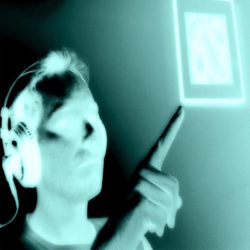Just read “Integral Psychotherapy: An AQAL Approach to Transformation” by David Zeitler. I found it to be a helpful and well-written orientation to this stuff. There’s something nagging at me though, as I begin to wade into the Integral tide: Must we filter everything through the AQAL Matrix in order to be “Integral” and to participate in what’s going on at Integral Institute? Ken Wilber has mentioned several times that his version is but one take on “Integral,” and that one can honor the basic integral impulse–to synthesize partial truths–in variety of ways. I worry that this will become mere lip service under the shadowy weight of market pressures and personal ambitions, i.e. the push to market Integral Psychology as a particular commodity one can appropriate in order to get a piece of the pie, so to speak. I realize that these shadow elements are unavoidable when a person or group of people try to make a splash in the mainstream.
Beyond that, at least at this point in my understanding, I find that the business of levels and lines and states and types, while interesting and helpful in some ways, filters out too much, puts too many labels on things that may be better processed intuitively first. It’s like this: If I want to know how to hike my way to a secret swimming hole, there’s a point where a map can become too instructive. I’d like to know how to get there and back, and maybe what to expect in terms of dangers in the environment (poison ivy, bears, etc.). But if you tried to construct some computer generated, virtual tour through the woods and gave me detailed instructions on what to look at and how to swim and on and on, then that would take away from my experience, the value of which may be in the open-minded and open hearted journey of discovery I would undertake. Too many details on a map makes it cumbersome and takes the fun out of the journey. And it biases a person to attend to this and to ignore that, causing us to repeat the same errors as the map-maker, to miss out on the same things. Okay, I’m losing the thread now.

